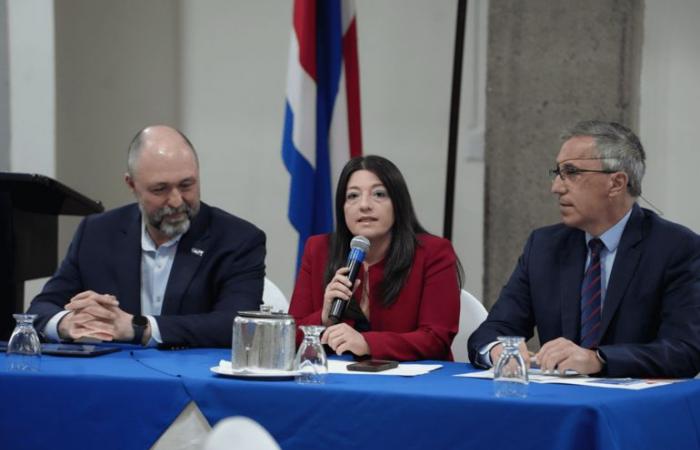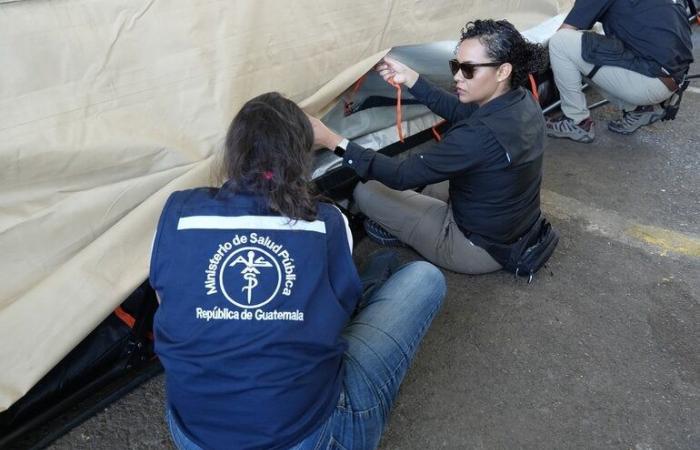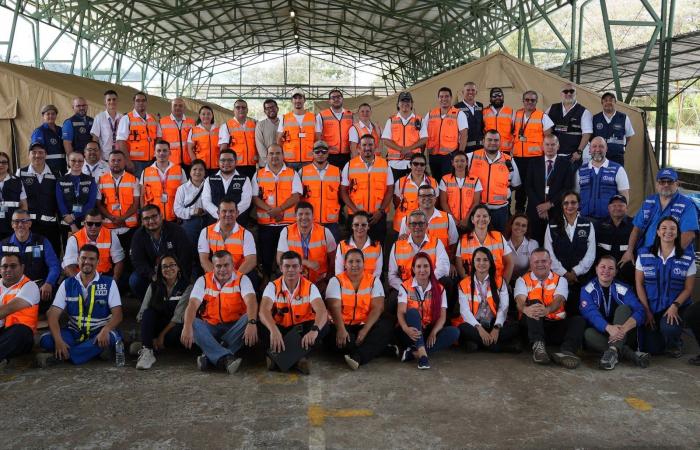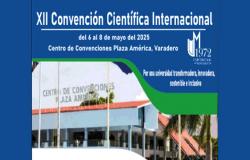San José, May 6, 2025 (PAHO). Costa Rica reinforced its commitment to regional emergency preparation by actively participating in two strategic exercises, highlighting the importance of inter -institutional collaboration and regional interoperability.
The first one was the Inter -institutional coordination exercise carried out in the framework of the World Health Emergency Body initiative (GHEC).
From April 1 to 4, 2025, representatives of the Ministry of Health, the Costa Rican Social Security Fund, the national Commission for Risk Prevention and Emergency Care, the Benemérita Red Cross Costa Rican, the Benemérito Fire Department of Costa Rica, the National Institute of Insurance and other entities of the Health Sector and the National Risk Management System participated in a national exercise oriented to strengthen the preparation for emergencies.
For four days, technical sessions, group dynamics and simulations focused on improving coordination between institutions against health threats of national and International scale were carried out.
The activities also promoted the development of leaderships and collaborative spaces as part of the national response structure, in line with the principles of the GHEC framework.
“Central America is a region to add and organize joint efforts is key, which is very aligned with the framework of action and the GHEC methodology. We do not intend to present a new network but see how we can work together, how we can optimize resources for a much more efficient response. We are sure that Costa Rica has much to teach us and much to show us”, Said Luis de la Fuente, regional OPS/WHO advisor for the health emergency department.
during the activity, the national exercise was integrated into the “Polaris 2025” pandemic response simulation, led by the World Health Organization and that brought together more than 15 countries to test coordinated responses to a fictitious health threat. Costa Rica actively participated in international technical meetings, decision -making simulations and real -time information exchange exercises together with the PAHO emergency operations center.
“This exercise sought to implement inter -institutional response procedures against international health threats. Efficient coordination and interoperability processes are key to guaranteeing timely interventions in health emergencies.”said Mariela Marín, Vice Minister of Health of Costa Rica, thanking the support of the PAHO and the commitment of the National Risk Management System.
Then, from April 7 to 10, Costa Rica was also the host of a field exercise that brought together Emergency Medical Equipment (EMT) of Central America. The objective was to strengthen clinical and Operational interoperability, standardize procedures and build a more cohesive regional response.
-Coordinated with PAHO, this exercise was led by the EMT of Cost Rica And it was attended by the national emits of El Salvador and Guatemala, focusing on mutual learning and the exchange of good practices between teams.
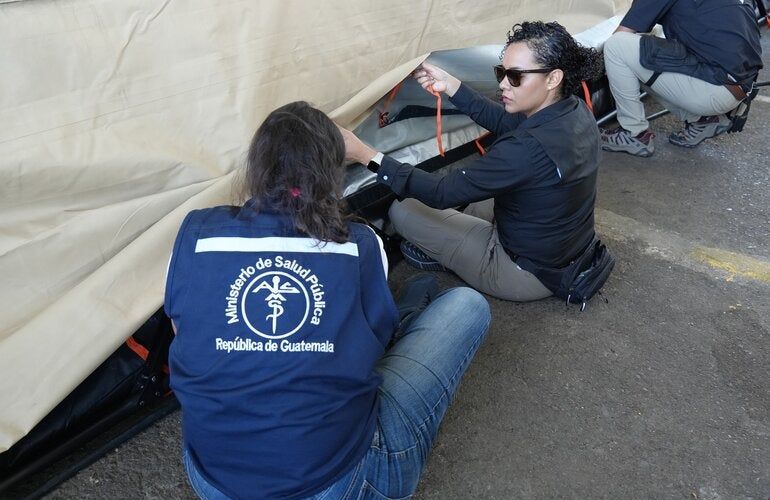
Through this real -time deployment, important progress was made in three key areas:
- Strengthening of Regional Coordination For sets in emergencies.
- Operational validation of technical and operational procedures.
- Promotion of an integrated response where all countries, strengthen their abilities through the exchange of knowledge and experiences.
“We are very pleased by the opportunity we have had to accompany the country in this exercise, where Costa Rica’s capacity is demonstrated again in the implementation of all strategies to demonstrate that they are prepared for emergencies and disasters. Very important that in this exercise the articulation that exists in the country between different actors is also highlighted,” said Alfonso Tenorio, representative of the PAHO/WHO in Costa Rica.
These exercises show that emergency preparation is not an individual effort, but a collective task.
With these initiatives, OPS promotes:
- Integration with international standards and initiatives: Costa Rica tested its protocols under the framework of the GHEC, identifying lessons to improve its national and regional response.
- Strengthening of Central American collaboration: The EMT exercise strengthens the capacities for an integrated, interoperable regional response and where all countries contribute and learn.
All this for a cooperation model, in which, the articulation between local institutions, international organizations and neighboring countries reinforces a collaborative approach to emergencies.
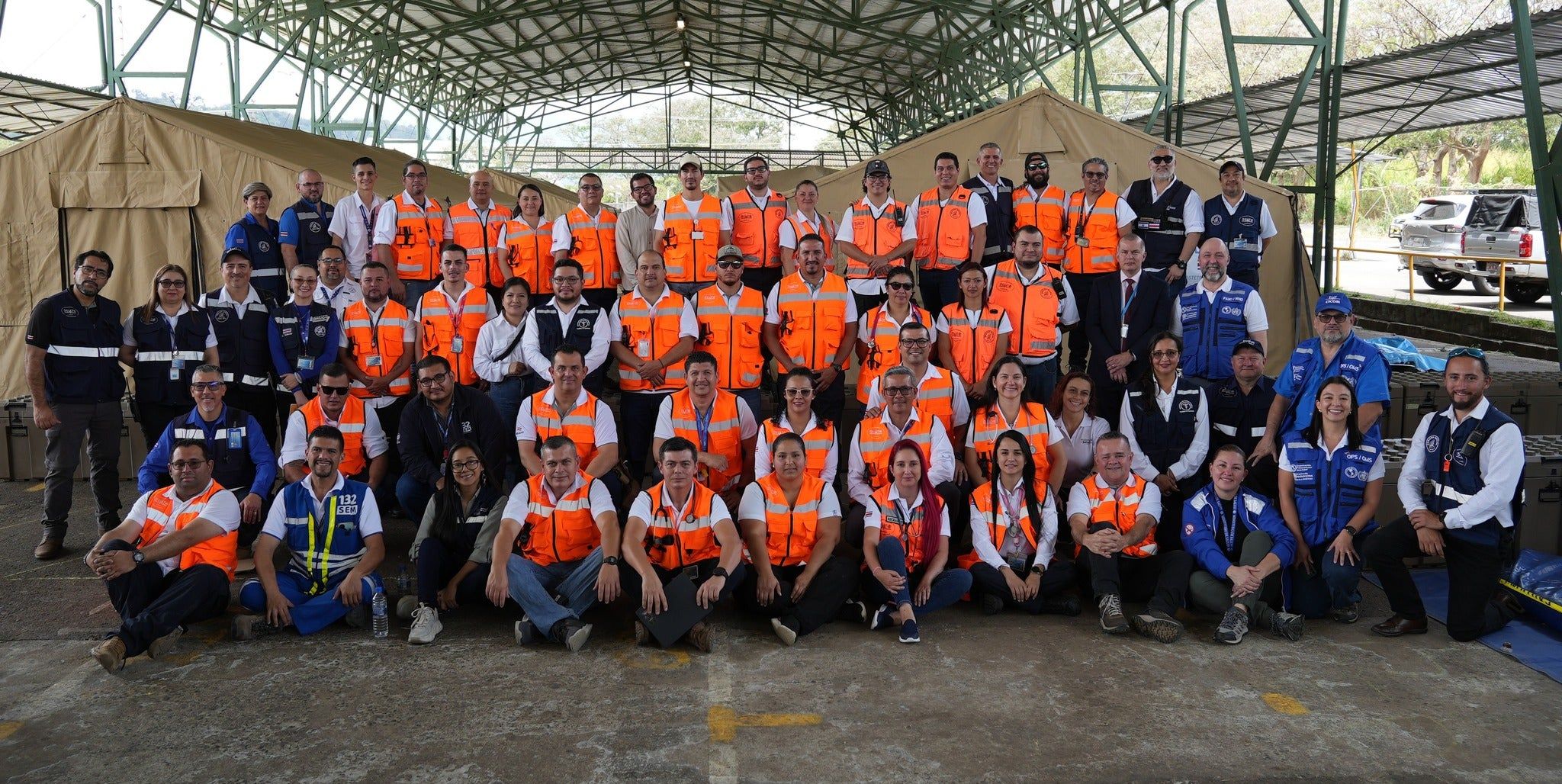
These activities were possible thanks to the support of two key partners. The national coordination exercise and integration to the Global Polaris simulation had the support of the Gates Foundation. For its part, the Spanish Agency for International Development Cooperation (AECID) facilitated support for the interoperability exercise of emergency medical equipment.
Both partners maintain a strong commitment to strengthening national and regional capacities for preparation and response to health emergency.


